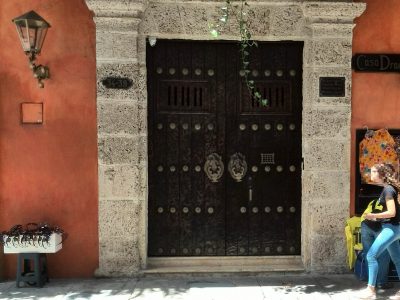Wikileaks har släppt ett antal Laos-filer som bekräftar landets underutveckling, inhemska korruption inom byråkratin och dess sköra miljö.
Andrew Walker tycker inte att läckorna “ger så stor insikt i de högre nivåerna inom Laos partistat” men andra intressanta avslöjanden har kommit fram:
In recent months several cables have appeared in the Wikileaks files from the US Embassy in Vientiane. They offer little insight into the upper-level workings of the Lao party-state, as one might hope (but hardly expect). But there are other points of interest.
One cable, an assessment of Asian Development Bank’s Country Strategy and Program (2006), offers a stinging rebuke of bilateral and multilateral donors in Laos, particularly their failure to leverage reform in areas of governance. The criticisms (both of Lao governance and foreign aid) are familiar but the frankness is unusual.
Ett telegram, en bedömning av den asiatiska utvecklingsbankens strategi och program per land (2006), ger en svidande tillrättavisning åt bilaterala och multilaterala donatorer i Laos, i synnerhet för att de misslyckats med att påverka till reform i regeringsfrågor. Kritiken (både av det laotiska styret och av utländskt bistånd) känns igen men den är ovanligt öppen
Öppenheten i åsikterna som uttrycks i telegrammen förvånade Eisel Mazard:
You’ve got to hand it to the diplomatic corps for taking the rhetoric up a notch from the usual feature section of The Economist; I can’t shake the sense that these guys are frustrated authors, yearning for an audience that could appreciate this kind of vitriol.
I really wasn’t expecting the cables to be this catty; it’s almost as if the bureaucratic context encourages them to step it up, in order not to be ignored amidst the pile of such reports that comes and goes with each season.
Jag förväntade mig verkligen inte att telegrammen skulle vara så elaka, det är nästan som om byråkratin eggar dem att ta i hårdare för att inte bli förbisedda i den stora mängden liknande rapporter som kommer och går varje säsong.
Här är ett utdrag ur ett telegram som handlar om ojämlika ekonomiska förhållanden i landet:
Although GoL(GOvernment of Laos) ministers and officials with salaries of less that 75 dollars per month sport villas and cars worthy of Monte Carlo, GDP per capita is still officially less than $400…Unemployment is epidemic, underemployment is endemic, crime is rising, and the investment climate is among the least hospitable in the world.
It's no accident that these economic ills are not addressed. There is almost no rule of law or basic human freedom in Laos, and education is in the hands of a corrupt and ideologically hidebound ministry that uses ADB money to build a grandiose but unnecessary new ministry building while rural children sit on logs and try to remember what a teacher looked like.
Det är ingen tillfällighet att dessa ekonomiska problem inte åtgärdas. Det finns nästan ingen rättssäkerhet eller grundläggande mänsklig frihet i Laos, och utbildning ligger i händerna på ett korrupt och ideologiskt inskränkt ministerium som använder pengar från Asiatiska utvecklingsbanken för att bygga en storslagen men onödig ny regeringsbyggnad medan barn på landsbygden sitter på stockar och försöker minnas hur det är att ha en lärare.
Men Bill, som är bosatt i Vientiane, kritiserar den “relativa kortsiktigheten hos telegrammen”:
As a longtime Vientiane resident, I’m mostly struck by the relative myopia of the cables. They cover a period of intense change in the country, and they are mostly saying nothing is changing, besides some material about their own relationships with the Lao government improving. Broadly they are far more about what Washington cares about (Hmong; money laundering; who the Lao government votes for at various UN meetings; limited progress on western style democratization) than what people in this country care about.
Journalisten Lao Bumpkin identifierar de relevanta Laos-relaterade ämnena på Wikileaks webbplats
Wikileaks has released it's cache of Laos files. I haven't read any of it yet, when I do I'll add to the end of the post. So far no news of cabinet ministers having falang mia nois or other important happenings.

Luang Prabang, Laos. Foto av jmhullot använd med CC-erkännandelicens-ShareAlike 2.0 Generic (CC BY-SA 2.0)
Här följer några intressanta uppfattningar och noteringar om Laos. Så här går ett val till i Laos:
By-and-large, Lao citizens took the election seriously, as a matter of national pride. The public announcements broadcast from polling stations played on the patriotism theme; we overheard one announcement telling voters they were demonstrating to a skeptical world that the Lao people cherished their voting rights and were faithful to their government and the Party. Voters were expected to show their regard for the electoral process. Women who showed up to polling stations wearing slacks or “improper” dress were sent home. In spite of the guarantee of a “secret” ballot, election officials were on hand to inspect each ballot to make sure the voters took their responsibility seriously and voted correctly.
Utvecklingsprojekt skadar de fattiga:
Intent on giving an open door to some foreign investors, the government has few compunctions about trampling on its own citizens, ignoring their traditional lands and livelihoods and utter dependence on their environment for their survival. In the near-absence of meaningful rule of law, those affected are at the mercy of sometimes venal, usually uncaring, bureaucrats administering the land use system. As Laos’ reputation grows as an “easy” place for investors in sectors like hydropower, plantation forests and mining, more and more of Laos’ poorest citizens are likely to find themselves dispossessed of their traditional lands.
I Laos “förväntas regeringstjänstemän vara korrupta såvida inte motsatsen bevisas.”:
In general, there is no sense among Party officials that there is anything significantly wrong with corruption, though a few stalwarts still hold to the socialist ideals of their youth.
A direct consequence of decades of abuse of power is that there is no public trust; government officials are presumed to be corrupt unless proven otherwise.
Som en direkt följd av decennier av maktmissbruk finns det inget förtroende bland allmänheten – regeringstjänstemän förväntas vara korrupta så länge som motsatsen inte bevisas.
Opiumodling är på nedåtgående men samhällen som en gång var beroende av att odla opiumvallmo svälter:
From the late 1980's until 2005, Laos was the third largest producer of opium poppy in the world. Significant poppy cultivation took place in about ten of 17 provinces, and authorities took no significant action against it, though they did tax opium until the mid 1990's.
The GOL estimates that half or more of all former poppy growers have yet to receive any significant assistance from any source to establish alternative livelihoods. The World Food Program reports that, in a number of communities formerly dependent on poppy, serious and widespread food security issues have emerged this year…There are grounds for serious concern that farmers might be compelled to revert to poppy cultivation or starve.
Den laotiska regeringen uppskattar att minst hälften av alla före detta opiumodlare inte ännu har fått någon nämnvärd hjälp från någon källa för att starta upp alternativ försörjning. FN:s livsmedelsprogram (wfp) rapporterar att allvarliga och omfattande matsäkerhetsfrågor har uppstått i år i ett flertal samhällen som tidigare var beroende av opiumodling… Det finns anledning till oro att lantbrukare kan tvingas återgå till opiumodling om de inte ska svälta ihjäl.






